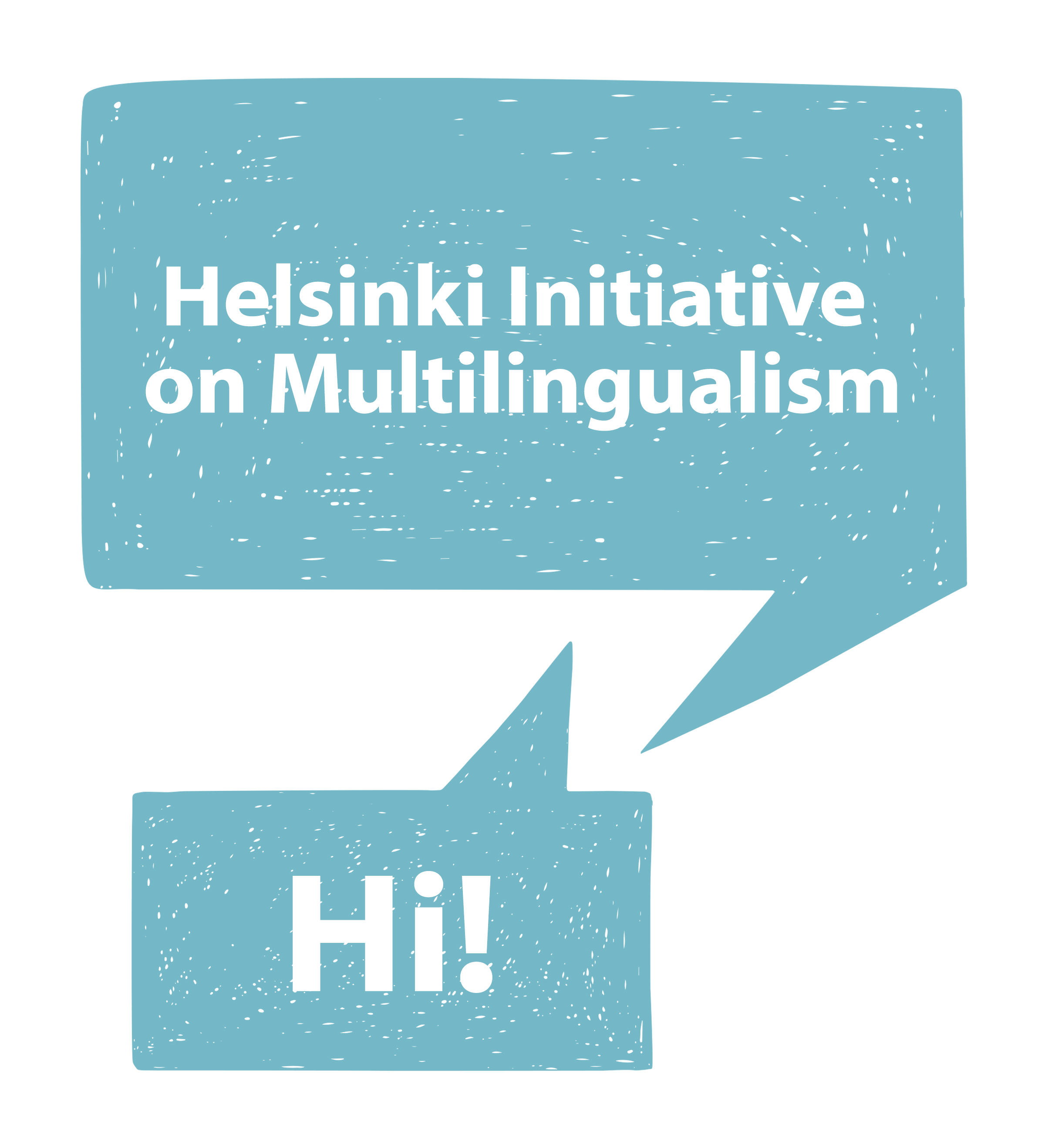Media
"G20 Recommendations on inclusion, diversity and combating inequalities in science, technology and innovation", endorsed on 19 September 2024 in Brazil, reaffirm research and innovation Ministers' commitment to diversity, equity, inclusion, and accessibility and combating inequities in science, technology, and innovation (STI) systems.
"Declaration for Multilingualism in Higher Education" authored by the European Civil Society Platform for Multilingualism (ECSPM), finalized at the ESCPM Symposium 24 March 2023, supports support the basic principles of the Helsinki
Initiative on Multilingualism in Scholarly Communication.
Declaration of Principles titled "A new research assessment towards a socially relevant science in Latin America and the Caribbean" by Latin American Forum for Research Assessment (FOLEC), aproved in June 2022 by the XXVII General Assembly of the Latin American Council of Social Sciences (CLACSO) endorses the Helsinki Initiative on Multilingualism in Scholarly Communication.
Agreement on Reforming Research Assessment, published 20 July 2022 supported by the European Commission with input from over 350 research organisations from more than 40 countries, recognises language as key dimension of the diversity of contributions to research and includes the Helsinki Initiative in its toolbox to support implementation.
In its conclusions on research assessment and implementation of open science approved on the 10th of June 2022, the Council acknowledges that action has to be taken to encourage the use of multilingualism for the purpose
of wider communication of European research results, and welcomes initiatives to promote multilingualism, such as the Helsinki initiative on multilingualism in scholarly communication.
Making science open requires diverse, multilingual, and locally relevant research accessible for different audiences. The research assessment reform should recognize and reward researchers’ ongoing multilingual communication practices and address language biases in research metrics and expert-evaluation. This does not mean prioritizing local languages over English, or translating all publications into different languages. Multilingualism in scholarly scholarly communication is relevant for all fields of science, including SSH.
In this post published in the LSE Impact blog, Janne Pölönen, Emanuel Kulczycki, Henriikka Mustajoki and Vidar Røeggen suggest that the omission of multilingualism from the European Commission’s recently published agenda for the reform of research assessment risks undermining the project’s aims of supporting high-quality and accessible research.
According to the Unesco Recommendation on Open Science approved in November 2021, one of the main goals of Open Science is to make “multilingual scientific knowledge openly available, accessible and reusable for everyone”. UNESCO also recommends that the member states consider “encouraging multilingualism in the practice of science, in scientific publications and in academic communications”.
In this study published in the Scholarly Assessment Reports, Elea Giménez Toledo shows that books are relevant outputs in research in Social Sciences and Humanities (SSH), and bibliodiversity and multilingualism are essential values for representing plural and diverse SSH research also linked to societal impact.
In this post published in LSE Impact Blog, Zehra Taskin, Guleda Dogan, Emanuel Kulczycki, and Alesia Ann Zuccala argue that science, when communicated exclusively in English, risks not fully meeting its third mission, which is to inform the public. Never before have we seen this phenomenon as intensified as it has been throughout the COVID-19 pandemic.
